Filter by
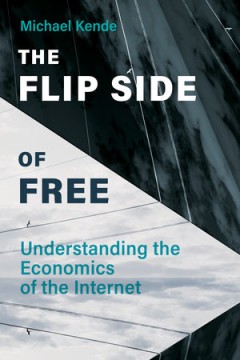
The flip side of free :understanding the economics of the internet
"A trade book on the economics of the internet and the policies that have shaped our view of online activity"--OCLC-licensed vendor bibliographic record.
- Edition
- -
- ISBN/ISSN
- 0262363585
- Collation
- 1 online resource.
- Series Title
- -
- Call Number
- -

Industrial organization and the digital economy
Theoretical and factual studies of ways that the rapidly evolving digital economy has changed the structure of different industries, focusing on the software and music industries.OCLC-licensed vendor bibliographic record.
- Edition
- -
- ISBN/ISSN
- 9780262276009
- Collation
- 1 online resource (307 pages) : illustrations
- Series Title
- -
- Call Number
- 660 IND
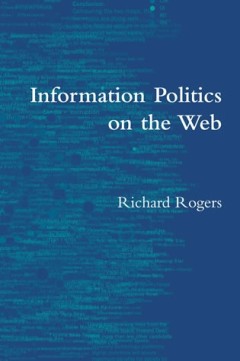
Information politics on the Web
Does the information on the Web offer many alternative accounts of reality, or does it subtly align with an official version? In Information Politics on the Web, Richard Rogers identifies the cultures, techniques, and devices that rank and recommend information on the Web, analyzing not only the political content of Web sites but the politics built into the Web's infrastructure. Addressing the …
- Edition
- -
- ISBN/ISSN
- 9780262256872
- Collation
- 1 online resource (xi, 200 pages) : illustrations
- Series Title
- -
- Call Number
- 001 ROG i
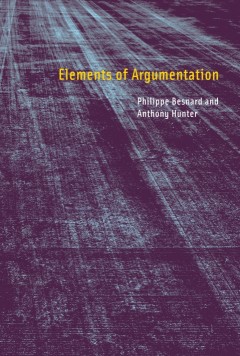
Elements of argumentation
Here the authors introduce techniques for formalizing deductive argumentation in artificial intelligence, emphasising emerging formalizations for practical argumentation. They discuss how arguments can be constructed, how key intrinsic and extrinsic factors can be identified, and how these analyses can be harnessed in the real world.OCLC-licensed vendor bibliographic record.
- Edition
- -
- ISBN/ISSN
- 9780262268400
- Collation
- 1 online resource (298 pages)
- Series Title
- -
- Call Number
- -

Aligning modern business processes and legacy systems :a component-based pers…
Distributed business component computing--the assembling of business components into electronic business processes, which interact via the Internet--caters to a new breed of enterprise systems that are flexible, relatively easy to maintain and upgrade to accommodate new business processes, and relatively simple to integrate with other enterprise systems. Companies with unwieldy, large, and hete…
- Edition
- -
- ISBN/ISSN
- 9780262257138
- Collation
- 1 online resource (xxii, 206 pages) :illustrations.
- Series Title
- -
- Call Number
- -
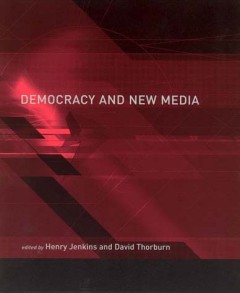
Democracy and new media
Digital technology is changing our politics. The World Wide Web is already a powerful influence on the public's access to government documents, the tactics and content of political campaigns, the behavior of voters, the efforts of activists to circulate their messages, and the ways in which topics enter the public discourse. The essays collected here capture the richness of current discourse ab…
- Edition
- -
- ISBN/ISSN
- 9780262276290
- Collation
- 1 online resource (x, 385 pages).
- Series Title
- -
- Call Number
- -
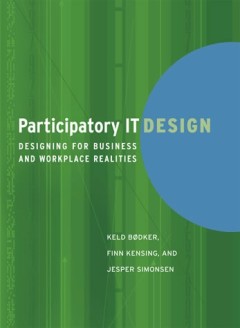
Participatory IT design :designing for business and workplace realities
Title from title screen.Title from book cover on Web Page (viewed Sept. 8, 2005)."The goal of participatory IT design is to set sensible, general, and workable guidelines for the introduction of new information technology systems into an organization. Reflecting the latest systems-development research, this book encourages a business-oriented and socially sensitive approach that takes into cons…
- Edition
- -
- ISBN/ISSN
- 9780262268875
- Collation
- 1 online resource
- Series Title
- -
- Call Number
- -

Technologies of choice? :ICTs, development, and the capabilities approach
Information and communication technologies (ICTs)--especially the Internet and the mobile phone--have changed the lives of people all over the world. These changes affect not just the affluent populations of income-rich countries but also disadvantaged people in both global North and South, who may use free Internet access in telecenters and public libraries, chat in cybercafes with distant fam…
- Edition
- -
- ISBN/ISSN
- 9780262305518
- Collation
- 1 online resource.
- Series Title
- -
- Call Number
- -
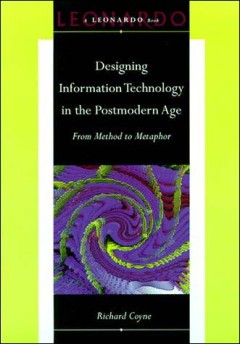
Designing information technology in the postmodern age: from method to metaphor
Designing Information Technology in the Postmodern Age puts the theoretical discussion of computer systems and information technology on a new footing. Shifting the discourse from its usual rationalistic framework, Richard Coyne shows how the conception, development, and application of computer systems is challenged and enhanced by postmodern philosophical thought. He places particular emphasis…
- Edition
- -
- ISBN/ISSN
- 9780262270885
- Collation
- 1 online resource (xiii, 399 pages) :illustrations.
- Series Title
- -
- Call Number
- -

Subversion, conversion, development : cross-cultural knowledge exchange and t…
This volume explores alternative cultural encounters with and around information technologies, encounters that counter dominant, Western-oriented notions of media consumption. The contributors include media practices as forms of cultural resistance and subversion, 'DIY cultures', and other non-mainstream models of technology production and consumption. The contributors - leading thinkers in sci…
- Edition
- -
- ISBN/ISSN
- 9780262322492
- Collation
- 1 online resource (266 pages).
- Series Title
- -
- Call Number
- -
 Computer Science, Information & General Works
Computer Science, Information & General Works  Philosophy & Psychology
Philosophy & Psychology  Religion
Religion  Social Sciences
Social Sciences  Language
Language  Pure Science
Pure Science  Applied Sciences
Applied Sciences  Art & Recreation
Art & Recreation  Literature
Literature  History & Geography
History & Geography